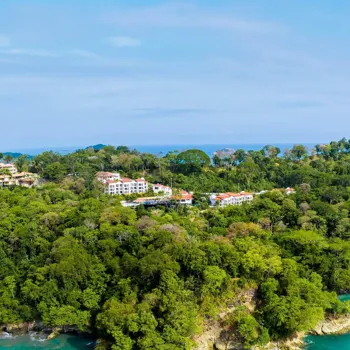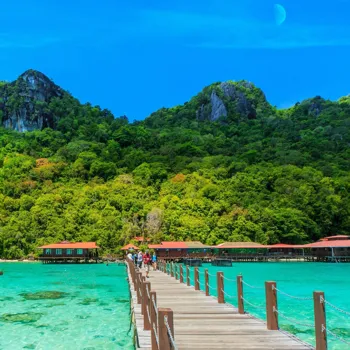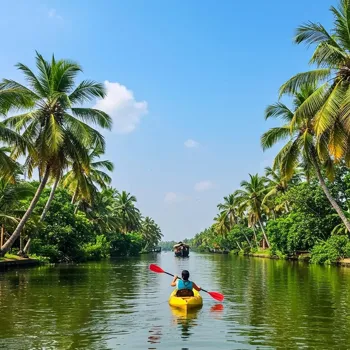Discover how to travel responsibly in India, respecting the environment, communities, and culture. Be a mindful tourist and make a positive impact!
Incredible India! From the snow-capped Himalayas to the sun-kissed
beaches of Goa, our country offers a kaleidoscope of experiences for every traveler.
But with the increasing number of tourists, it's becoming crucial to travel responsibly, ensuring that our adventures leave a positive impact on the environment, local communities, and our rich cultural heritage.
Being a mindful tourist is not just about ticking off destinations; it’s about respecting the places we visit and contributing to their well-being. So, let's explore how we can become more conscious travelers and make a difference!
Minimize environmental impact through eco-friendly choices in travel
First and foremost, consider your environmental impact. India is a land of diverse ecosystems, many of which are incredibly fragile. Aim to minimise your carbon footprint by opting for eco-friendly transportation options, like trains or buses, instead of frequent flights whenever possible.

Within cities or towns, explore the option of walking, cycling, or using public transport. Carry your own reusable water bottle and say no to single-use plastics. When visiting natural sites, stick to marked trails, avoid disturbing wildlife, and definitely don't litter!
Remember, leaving only footprints and taking only memories is the mantra for responsible travel. Be mindful of our natural heritage and help to protect it.
Support local communities through responsible tourism: stay in guesthouses, buy from artisans, eat local
Supporting local communities is another vital aspect of responsible tourism. Instead of staying in large international hotel chains, consider opting for guesthouses or homestays run by local families. This directly benefits the community and provides you with a more authentic cultural experience.

Shop for handicrafts and souvenirs directly from local artisans and avoid bargaining excessively; remember that your tourism directly supports their livelihood. When eating out, choose restaurants that serve local cuisine and source their ingredients locally.
By investing in the local economy, you can contribute to sustainable development and empower communities. Choose authentic eateries or roadside vendors who sell fresh produce.
Respect local culture when traveling; learn customs, dress modestly, and be considerate
Respecting local culture and traditions is paramount. Before visiting a place, take the time to learn about its customs, religious beliefs, and social etiquette. Dress modestly, especially when visiting religious sites.
Ask for permission before taking photographs of people, especially in rural areas. Be mindful of noise levels, particularly in residential areas or sacred spaces.
Learn a few basic phrases in the local language; even a simple "Namaste" or "Dhanyavaad" (thank you) can go a long way in building rapport and showing respect. Remember that you are a guest in someone else's home, and it's your responsibility to be respectful and considerate.
Avoid any actions that may offend or disrespect local sentiments.
Conserve water and energy to combat scarcity in India
Be mindful of water and energy consumption. India is facing water scarcity in many regions, so it's important to conserve water whenever possible. Take shorter showers; reuse towels in your hotel room; and report any leaks to the management.
Similarly, be mindful of energy consumption by turning off lights and air conditioning when you leave your room. Consider using energy-efficient appliances and supporting hotels that have implemented sustainable practices. Simple actions can collectively make a big difference.
Remember that resources are precious and need to be used wisely. By acting as a positive role model, you can encourage others to do the same.
Ethical consumption: Avoid exploitation, support welfare, conservation, and respect for animals
Ethical consumption is another key aspect. Avoid purchasing products made from endangered species or those that exploit animals. Support ethical tourism operators who prioritise animal welfare and conservation.

When visiting wildlife sanctuaries or national parks, choose guided tours conducted by local naturalists who can provide valuable insights into the local flora and fauna.
Be wary of unethical wildlife tourism practices, such as elephant rides or tiger shows, which often involve cruelty and exploitation. Remember that animals are not entertainment; they are an integral part of our ecosystem and deserve to be treated with respect and dignity.
Also be mindful when consuming any sort of product to know where it comes from.
Plan ahead for sustainable and smooth travel experience
Planning ahead is always a good idea. Prepare a detailed itinerary, including the destinations you want to visit, the activities you want to do, and the accommodations you want to reserve.

Booking your transportation and accommodations in advance can help you find the best deals and avoid last-minute price hikes. Consider traveling during the off-season to avoid crowds and support sustainable tourism.
Research local tour operators and travel companies that prioritize responsible tourism practices. Pack lightly; this will reduce your carbon footprint and make it easier to navigate crowded streets and public transport.
By planning ahead, you can ensure a smooth and enjoyable travel experience while minimizing your impact.
Adopt mindful tourism for sustainable future in India
By adopting these simple practices, we can all become more mindful tourists and contribute to a more sustainable and equitable future for India's tourism industry. Remember that responsible tourism is not just a trend; it's a responsibility we all share.

Let's explore India with respect, compassion, and a genuine desire to make a positive difference!
AI Generated Content. Glance/InMobi shall have no liability for the content












